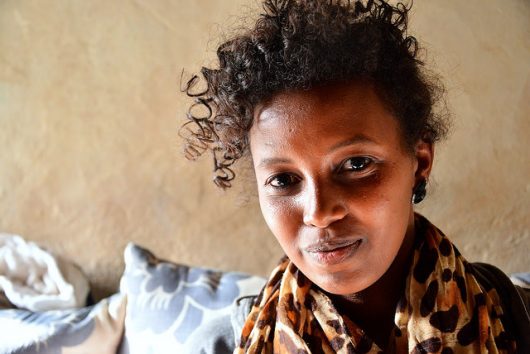Top 5 Facts About Smart Cities in Africa

Africa, much like the rest of the developing world, is racing towards a potential crisis of overpopulation. Over the past 50 years, Africa has held a persistent population growth rate of 2 percent, and this growth, according to the U.N. Population Division, is showing no signs of slowing down.
Factors of Overpopulation
A variety of factors are contributing to this rate of growth, the most prominent of which is Africa’s staggeringly high fertility rate. The top 15 nations with the highest rates of fertility in the world all lie within Africa’s borders. Africa’s challenge of fertility rates and overpopulation is only being compounded with the improvement in health care and lagging family planning programs. People are living longer and children are surviving birth more frequently but fertility rates in Africa are remaining static. In Africa, the fertility rate is five to six children per birth mother. In comparison, the fertility rate of the United States is just below two children per birth mother.
As Africa’s population continues to expand, more and more of its new citizens are opting to live in urban areas. This increases pressure on governors, policymakers and city planners to ensure that Africa’s urban landscapes are properly optimized to support a growing population.
Improved family planning alongside a host of other measures is being taken to target the root causes of overpopulation in Africa. Even still, these measures may not be enough. Africa, as a continent, is in need for creative solutions that go beyond the causes and effects of overpopulation, and towards the future, in order to address these symptoms.
Smart cities, a new conceptual model for living in Africa aims to address these symptoms of overpopulation alongside increased urbanization. These cities are being built to be relevant in an ever-evolving global climate. In the text below, five facts about Smart cities in Africa are presented.
5 Facts About Smart Cities in Africa
- Smart cities are founded on a simple premise. While their name itself conjures up images of futuristic glowing skyscrapers and flying cars, the actual premise of smart cities is far more pragmatic and simple. WSP, a large-scale urban and environmental consultant firm defines smart cities as “developed urban areas that create sustainable economic development and high quality of life”. In essence, smart cities are urban areas built with the intention to support a vast number of citizens whilst providing a range of economic opportunities. Achieving this goal across Africa’s varying urban landscapes is easier said than done, though.
- Smart cities are gaining momentum. On July 4 and 5, 2018, Johannesburg, South Africa, was host city to the annual Smart Cities Africa Summit. The event, which attracted a selection of business executives, ambassadors and assorted government officials, was, according to the official website, dedicated to “co-creating smart cities in Africa – beyond the rhetoric”. The operators predict that summit in 2019 will be bigger and better, attracting a wider selection of powerful people from across the continent. This summit isn’t the only effort to bring smart cities to the forefront of the African urbanization dialogue. Smart Africa, a coalition of African nations who adhere to the smart manifesto, is dedicated to ensuring that Africa remains focused on the future capabilities.
- Existing cities can become smart cities. Cape Town provides a compelling example of a city evolving to become smart. Cape Town, through its implementation of an assortment of city-wide sensors, has provided itself access to real-time data provided by a variety of pieces of municipal infrastructure, like street lights, plumbing systems and waste bins. This affords Cape Town the ability to better optimize a host of its municipal system, from traffic congestion to garbage retrieval.
- African smart cities have already been proposed. While much of the framework behind the idea of smart cities rely on revolutionizing already existing urban areas, some development firms have taken this framework to new heights by proposing the construction of entirely new smart cities. One of these cities, King City, is set to be constructed outside Takoradi Harbour in Ghana and stands as an example of the potential of smart cities. While it’s premise is borderline gaudy (a huge statue is proposed to be built on a hill in town), many of its aims mirror the pragmatic goals of the original smart city ethos. According to its backing firm, Rendeavour, King City hopes to be an area “that will accommodate residential and commercial growth associated with the region’s mining and energy sector boom”, while providing comfortable housing to Ghana’s burgeoning urban population.
- Smart cities aren’t just for Africa. While the premise of smart cities is particularly alluring to developing nations, its reach is becoming global, meaning nations of various levels of development are partaking in the smart city efforts. The Smart Cities Council, an organizational body, has branches across the world, in both developed regions like North America and developing nations such as India. They, like many other initiatives, abide by three tenets of smart cities: livability, workability and sustainability.
Clearly, the implementation of smart cities should not and will not be cordoned off to a section of the globe. They hold the potential to help humanity as a whole.
– Ian Lloyd Greenwood
Photo: Flickr
